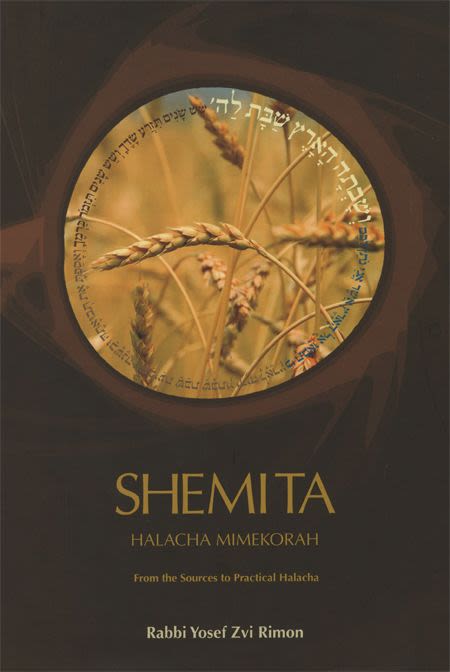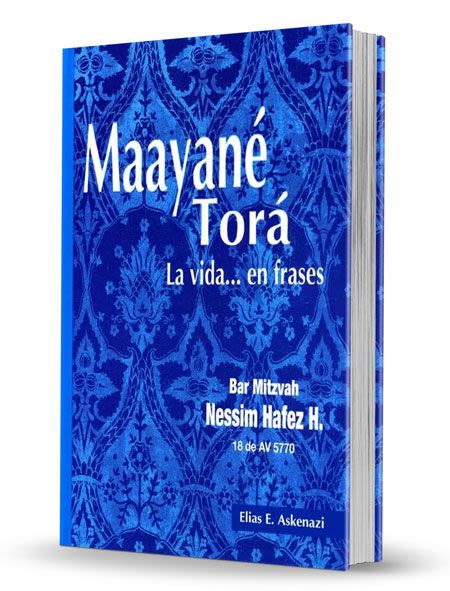
The Higher Wisdom and the Lower Wisdom
We must cut away all the doubts and depression that cling to us and make it difficult for us to serve God. Then the Kingdom of Holiness will...

In Likutey Moharan, Rebbe Nachman speaks about the concepts of the Higher Wisdom and the Lower Wisdom (Chochmah Ila’ah and Chochmah Tata’ah). There he writes: “Sometimes, God forbid, the Kingdom of Holiness [the Divine Attribute of Malchus], which is known as the Lower Wisdom, falls into exile among the four [evil] empires” (Ibid. 30:6).
The first thing to understand is what is meant by “the Kingdom of Holiness” or the “the Lower Wisdom” in terms of an individual’s service of God. It refers to the entire system of conduct and behavior by which a Jew serves God: All the laws and customs of the Written Torah, the Oral Torah, and the Shulchan Aruch – in other words, the revealed dimension of the Torah. This is referred to as the Lower Wisdom, because it is derived from the Higher Wisdom, which is the esoteric dimension of the Torah. The Lower Wisdom is a condensed form of the Higher Wisdom, and through it, the Higher Wisdom becomes comprehensible to us.
Rebbe Nachman calls this Lower Wisdom the “black of the eye,” because just as the tallest mountain can be reduced and seen through the pupil of the eye, so too, the Lower Wisdom can reduce the highest levels of understanding and make them accessible to our minds. The color black indicates the concealment of light. Yet it is precisely through the “black of the eye” (the pupil) that we are able to perceive light the process of concealment allows for the possibility of comprehension and perception (Ibid. 30:3).
In the future, we will have a true understanding of the Higher Wisdom, but even then, it will be made possible by the Lower Wisdom. Thus the verse says, “I am black, but beautiful” (Shir HaShirim – Song of Songs – 1:5). The pupil of the eye is black, but through it, all the beauty of the world can be perceived.
Redeeming the Kingdom of Holiness
With this we can begin to understand Rebbe Nachman’s statement that “Sometimes, God forbid, the Kingdom of Holiness, the Lower Wisdom, falls into exile among the four [evil] empires." In a literal sense, the “four empires” are the four non-Jewish kingdoms that exiled the Jewish people at different periods in history. However, the Sages teach that when the Jewish people went into exile, the Divine Presence (the Holy Shechinah, which is also Malchut, the Divine Attribute of Kingship) went into exile together with them. Hence, in a deeper and more general sense, the “four empires” are all the spiritual forces of unholiness which seek to draw the energy of the Divine Presence to themselves, and to use it for their own unholy purposes. This is the meaning of the statement on a cosmic, universal level.
However, we must also understand this in terms of an individual’s service of God. We have already explained that the Lower Wisdom is the system of conduct by which a person expresses holiness in his life. Hence, when Rebbe Nachman says that “Sometimes, God forbid, the Kingdom of Holiness, the Lower Wisdom, falls into exile among the four [evil] empires,” he means that sometimes the evil inclination makes a person feel depressed and apathetic about avodat Hashem, in an attempt to cause the “downfall” of the individual’s “Kingdom of Holiness” – the way he serves God.
The way to prevent the four empires from conquering the Kingdom of Holiness is by serving God with energy and enthusiasm. We must cut away all the doubts and depression that cling to us and make it difficult for us to serve God. Then the Kingdom of Holiness will shine with full strength, and guide us in every aspect of our lives.
By Means of Loving – Kindness
According to Rebbe Nachman, this is accomplished by performing deeds of kindness, for the verse says, “A throne shall be established with kindness” (Yishayahu 16:5), and God’s Throne is the aspect of His Kingship. Elsewhere it is written, “Sow for yourselves charity, and reap [kitzru] according to kindness” (Hosea 10:12). The word “kitzru” means “to cut,” and so the verse suggests that acts of loving-kindness have the power to cut away the forces of evil (the four evil empires) so that depression and doubt will no longer hinder us in avodat HaShem.
This means that by performing mitzvot related to loving-kindness – by giving charity, honoring our parents, and serving guests, and by making concessions and taking pleasure in the good fortune of others – we increase the power of the Kingdom of Holiness in the world an in our own lives, and as a result, we will be able to serve our Creator with joy, tranquility, and fulfillment.
It was for this reason – to strengthen and elevate the Kingdom of Holiness – that our forefather, Avraham (Abraham), was always searching for deeds of kindness to perform. It is also the inner meaning of his victory over the four kings, who represent the four evil empires.
All this can be summarized in the following practical advice: If we are unable to serve God as well as we would like, if we find that we are blocked by obstacles, or burdened, or depressed, the best remedy is to perform acts of loving-kindness. For “a throne is established with kindness,” and each individual’s Kingdom of Holiness can also be established through act of loving-kindness.
The Power of Tzedakah
Rabbi Tarfon was very rich. On one occasion, Rabbi Akiva asked him: “Would you like me to buy property for you in several different cities?” Rabbi Tarfon agreed, and he gave Rabbi Akiva four thousand gold coins. But instead of buying property, Rabbi Akiva distributed the money to the poor. Sometime later, Rabbi Tarfon and Rabbi Akiva met. “Which properties did you buy for me? he asked. “Where are they located?” Rabbi Akiva took him by the hand and led him to the study hall. He opened a Book of Tehillim and they read together until they reached the verse, “He scattered [his wealth], he gave to the poor, his righteousness endures forever…” (Tehillim 112:9). “This is the property I bought for you,” Rabbi Akiva said. Rabbi Tarfon stood up and kissed him on the head. “You are my teacher and my master,” he said to him. “My teacher in wisdom and my master in tactfulness.” Then he gave Rabbi Akiva more money to “squander.” (Masechtat Kallah, Chapter 1)
* * *
What is going on in this story? What did Rabbi Akiva teach Rabbi Tarfon that he didn’t know already? And why did Rabbi Akiva pick this verse to teach the greatness of tzedakah? Aren’t there earlier verses in Tehillim that also mention its importance?
The answer to these questions is found in a teaching of the Arizal, (Sha’ar Mamarei Chazal, Bava Basra 10b) who points out a grammatical anomaly in this verse. In an earlier verse from this psalm (112:5), it is written, “A good man lends with good grace, he conducts his affairs justly.” There it speaks in the present tense. In this verse (112:9), however, it is written, “He scattered [his wealth], he gave to the poor, his righteousness endures forever…” To be consistent, it should have said, “He gives to the poor.” Why does this verse switch to past tense?
The Arizal answers with a story: Once there was a wealthy Jewish nobleman who had completely abandoned the path of Torah and mitzvot. He decided to make a lavish banquet for his fellow noblemen, but on the day of the banquet, none of his aristocratic friends came to participate. As a result, he took all the food he had prepared and gave it to the poor. In the merit of this act of charity, when he died many years later, a large number of Jews attended his funeral.
Why did he deserve this reward? After all, he wasn’t thinking about the poor when he prepared his banquet, and he didn’t originally plan to give them anything. It was only when nobody showed up, and he had nothing else to do with the food, that he gave it for charity.
But this, the Arizal explains, is precisely the greatness of the mitzvah of tzedakah. When the verse says “He scattered [his wealth], he gave to the poor…” it is referring to such a person who doesn’t usually give, but once it happened that in an accidental, after-the-fact manner, he scattered his wealth (past tense). Nevertheless, the verse continues, “his righteousness endures forever” – he receives an eternal reward, as if he had meant to do the mitzvah from the beginning. This remarkable aspect of the mitzvah of charity is not found in any other mitzvah (see Rashi, Devorim 24:19, s.v. “Lema’an yevarechecha”).
Now we can better understand the story of Rabbi Tarfon and Rabbi Akiva. Originally, Rabbi Tarfon did not plan to give his money to charity, although he agreed to it after it was done. Nevertheless, he might have thought that such an unintentional act could not be counted as a mitzvah. For this reason Rabbi Akiva showed him the verse, “He scattered [his wealth], he gave to the poor…” He taught Rabbi Tarfon a fact about tzedakah and an interpretation of a verse which he had not known before, and hence Rabbi Tarfon kissed him and called him “my teach and my master.”
From here we see the special power of mitzvot based on love and generosity: Their merit lasts forever, even when they were not performed with the purest intentions.
An Eternal Name – Through Kindness
Rebbe Nachman writes in Sefer Hamiddot: “If a person does an act of chesed, a name that he gives will endure. Hence, before naming a baby, one should do an act of kindness so the name of the child will endure” (Sefer Hamiddot, Mohel 6).
This can be understood according to a teaching of the Arizal (Sha’ar HaGilgulim, Hakdamah 23) that every person has two names, a name from the side of holiness, and a name from the side of unholiness. If he acts properly, he fulfills the potential inherent in his holy name. But if not, the opposite can occur, God forbid. Therefore, in order to help a child fulfill the potential of his holy name – in order for the holy name to be the permanent one – the person who give the name should first perform an act of kindness.
In his footnotes to Sefer Hamiddot, Reb Nachman of Tcherin cites a Midrash which hints at Rebbe Nachman’s idea. Chazal tell us the Moshe (Moses) had seven different names (Megilah 13a). Yet the only name that endures forever, and the only one that God Himself uses in the Torah, is “Moshe”, because it related to an act of kindness. The name means, “He was drawn from the water” (Rashi on Exodus 2:10) and it was given by Batya, the daughter of Pharaoh, who rejected her father’s cruel decree and saved the Hebrew child she found in the river. Because she performed an act of loving-kindness, her name is the one that endures forever (see also Shemot Rabbah 1:31).
Indeed, the name Moshe, a name that is rooted in kindness, is applied to the Torah itself, as seen from the verse: “Remember the Torah of Moshe, My servant” (Malachi 3:22). This is appropriate, for as the Gemara notes: “Acts of loving-kindness are the beginning and the end of the Torah” (Sotah 14a). Hence the word “Torah” has the same numerical value as the words gemilut chasadim, “loving-kindness” (Be’er Moshe, Shemot 17), for acts of loving-kindness are the Torah’s very essence.
To be continued…
(Excerpt from The Scent of Gan Eden, by Rabbi Yaakov Meir Shechter, Keren Ohr Publications. Used with author’s permission.)












Tell us what you think!
Thank you for your comment!
It will be published after approval by the Editor.